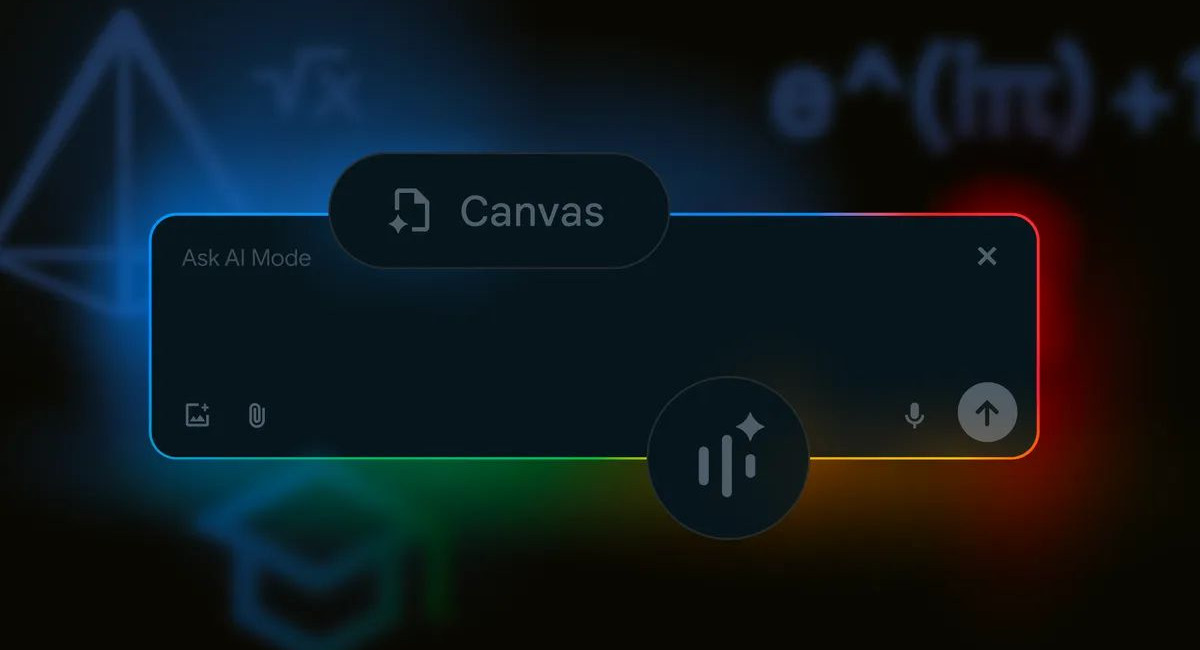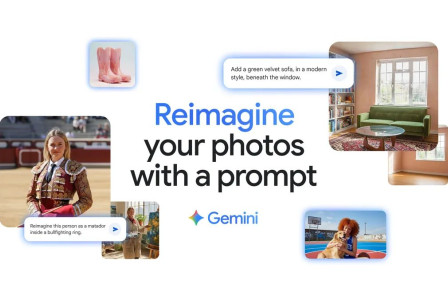SEARCH
Google reinvents Search with a major AI Mode overhaul

SHARE IT
In a strategic move to reclaim its dominance in the AI-powered search space, Google has rolled out a sweeping update to its AI Mode within Search. This latest enhancement aims to not only modernize how users interact with information but also to offer powerful tools that rival standalone AI platforms. With new capabilities spanning document analysis, long-term research support, and real-time visual assistance, Google is clearly positioning AI Mode as the future of online search.
AI Mode has always differed from the traditional search bar by offering more interactive and layered responses. Rather than returning a list of links, it interprets user queries and generates follow-up questions to refine the search. This dynamic back-and-forth has made it more of a learning companion than a typical search engine. Now, with a host of new features, AI Mode is evolving into a full-fledged information assistant.
One of the most impactful upgrades is support for file uploads on desktop. Users can now drag and drop PDFs or images into AI Mode and ask detailed questions about the contents. This mirrors functionality that had been limited to mobile devices—where users could already ask the AI questions about screenshots or photos—but takes it a step further by enabling in-depth analysis of entire documents. Whether it’s a dense academic paper or a full slide deck from a lecture, the AI can extract context, answer specific questions, and even pull in supporting evidence from the broader web to give sourced responses.
Google isn’t stopping at simple Q&A functionality. The addition of the Canvas feature brings long-term planning and project management into the fold. Presented as a sidebar within AI Mode, Canvas allows users to build and develop projects over multiple sessions. Inspired by tools like ChatGPT’s Canvas and Google’s own Gemini Canvas, it provides a flexible digital workspace. Users can start with a simple prompt, let the AI generate a draft outline, organize relevant resources, and return to the same workspace later to continue refining their research or learning path.
This continuity is a clear evolution from Google’s historical one-and-done search model. Instead of closing a tab and losing all progress, users can build an ongoing knowledge base. Google has announced that Canvas will eventually support file uploads directly, integrating it more closely with the rest of AI Mode’s functionality. While it doesn’t yet generate podcasts like NotebookLM, the direction is unmistakable: this is search transformed into a long-term knowledge companion.
Perhaps the most futuristic addition is Search Live, a tool that blends real-time camera input with Google’s AI capabilities. Built on the foundation of Google Lens and powered by the Project Astra AI, Search Live allows users to point their phone camera at an object or situation and receive live AI-generated feedback. This could mean diagnosing an error message on a kitchen appliance, solving a handwritten math problem, or identifying a species of plant—directly through the camera feed while interacting with the AI.
Instead of relying on static text input, Search Live introduces a form of conversational visual search. The AI watches what you show it, listens to your voice, and provides answers in real-time, simulating the experience of consulting a well-informed friend via video call. This immediate, context-aware feedback has the potential to change user expectations of what AI-powered search can and should deliver.
These enhancements are further reinforced by updates to Google Lens in the Chrome browser. Users will soon be able to click the address bar and instantly ask questions about the content of any open web page, slide, or PDF. Highlighting a paragraph, for example, could trigger an AI Overview with additional context, summaries, and deeper insights. From there, users can transition seamlessly into AI Mode to explore further—transforming everyday browsing into an interactive learning experience.
While none of these features individually feel like a groundbreaking leap, together they represent a significant shift in how Google envisions the future of search. Rather than simply indexing the web, Google is aiming to create a personal, persistent AI guide through the digital world.
MORE NEWS FOR YOU

 Help & Support
Help & Support 

